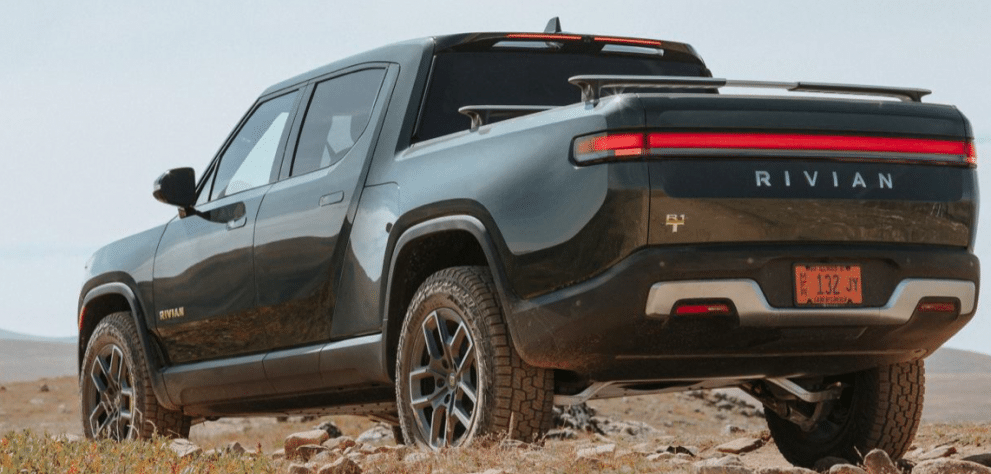
After a huge and exciting 2020 in tech initial public offerings, 2021 has been hot and cold, with some names finding early success with their IPOs while others not so much. For electric vehicle maker Rivian (Rivian Stock Quote, Charts, News, Analysts, Financials NASDAQ:RIVN) the ride looks to be getting a bit bumpy yet it’s hard to argue with success, in this case, a gain of over 60 per cent in its first week of trading.
But for Bryden Teich of Avenue Investment Management, Rivian should be avoided like the plague right now, as the stock’s movements speak to the purely speculative.
“I find it shocking how quickly it’s exploded to a market cap well beyond even the traditional automaker space,” said Teich, partner at Avenue Investment, who spoke on BNN Bloomberg on Wednesday.
“I think this is another sign of speculative euphoria where people are chasing these hot IPOs. Last year, it was Peloton and Zoom, this year it’s things like Rivian,” he said.
California EV-maker Rivian is coming in at the right time, no doubt. As the market continues to be enthralled by Elon Musk and Tesla’s sky’s-the-limit potential to rewrite the book on automobiles just at a moment when governments worldwide are doubling down on their climate promises and encouraging everybody and their grandma to buy electric cars. Waiting times are huge for EV’s from standard names like Ford and Volkswagen and folks are getting the sense that “my next car’s gonna be electric” is now the mantra heard round the world.
Which puts Rivian, with its R1T pickup truck and soon-to-be R1S SUV, in a heck of a spotlight right now, starting off by selling about 153 million shares at $78 per and ending its first day of trading on the NASDAQ at $100 for a market cap of about $86 billion. The stock promptly zoomed to close to $180 and has been heading back to reality mid-week, still up a bundle at around $128 per share.
To put the number in perspective, that’s a $123 billion market cap for a company with zero in revenue. Volkswagen itself is in that territory at a $138 billion market cap and Ford Motor Company, a prime backer of Rivian with about a 12 per cent stake in the company, currently has an $80 billion market cap.
“As we near the start of vehicle production, it’s vital that we keep looking forward and pushing through to Rivian’s next phase of growth,” said Rivian CEO RJ Scaringe, in a July 23 press release to mark $2.5 billion more in funding for the company, with backers including Amazon and Ford. All told, that meant Rivian had raised a whopping $10.5 billion over the past two years, while the IPO added another $12 billion in financing.
“This infusion of funds from trusted partners allows Rivian to scale new vehicle programs, expand our domestic facility footprint, and fuel international product rollout,” Scaringe said.
But having the splashiest IPO in years is one thing and coming through with the goods is another. For Teich, Rivian’s initial success as a stock speaks more to the uncertain times investors currently find themselves in rather than to anything intrinsic to the company itself.
“It’s not something that we’re particularly interested in as an individual investment, but I think it’s a great way to take the temperature of the market when you see things like this explode higher,” Teich said.
“It tells you we’re in a very speculative environment and I think that there’s a lot of context that investors can take away, more broadly from seeing behaviour in stocks like that,” he said.
For an opposing view on Rivian, we don’t have to look farther than one of its biggest backers, investment managers T. Rowe Price who have led multiple funding rounds for Rivian and are set on seeing this project through.
Joe Fath of T. Rowe Price spoke recently on CNBC’s “Squawk on the Street” to say that the EV market is capturing the imagination of retail and institutional investors, alike. Fath said T. Rowe has been particularly impressed by Rivian’s leadership and its focus on vertically integrating its production through aiming to in-house its battery manufacturing.
“You need to separate the wheat from the chaff in this [sector] over time. It’s really about building a sustainable brand and also a product that’s going to resonate with customers. And I think once [Rivian’s] products are in the hands of consumers as well as commercial drivers I think they’re really going to resonate and really going to captivate people’s attention,” said Fath.
“If you look at it today, Tesla and Rivian have the two largest EV manufacturing plants in the United States. All the others are going to need a lot of capital to build the business and to have a full product suite that touches high price points as well as well as low price points,” he said.
Leave a Reply
You must be logged in to post a comment.



 Share
Share Tweet
Tweet Share
Share




Comment